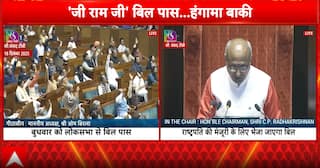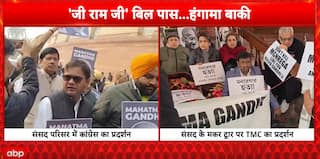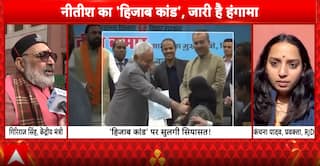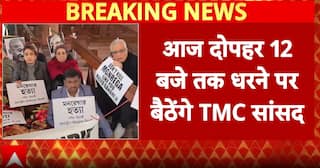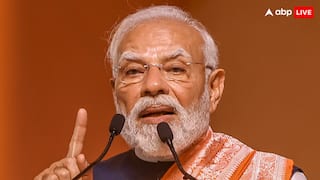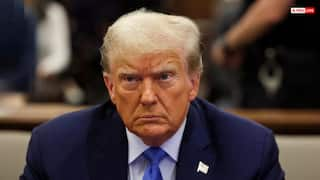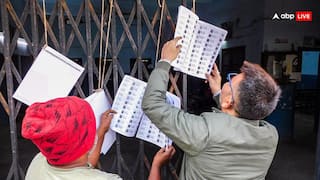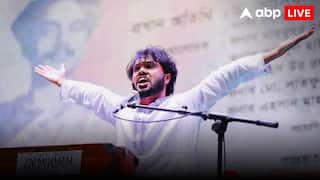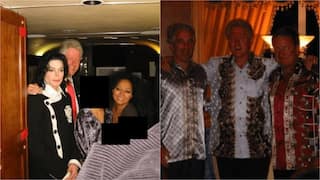Supreme Court To Hear Arvind Kejriwal's Plea Against ED Arrest In Delhi Liquor Policy Today
The Supreme Court will resume hearing Delhi Chief Minister Arvind Kejriwal's petition challenging his arrest by the Enforcement Directorate (ED) in connection with the Delhi Liquor Policy Case

The Supreme Court will resume hearing Delhi Chief Minister Arvind Kejriwal's petition challenging his arrest by the Enforcement Directorate (ED) in connection with the Delhi Liquor Policy Case on Tuesday.
In the last hearing the bench of Justice Sanjiv Khanna and Dipankar Datta had observed that as the arguments in the case are expected to prolong, the top may consider interim bail due to the upcoming elections on May 25. However, the bench stated that they will hear separate arguments on interim bail.
Justice Khanna however clarified that the court is merely putting the ED on notice about the intention to consider the plea for interim bail and is not expressing any opinion. The court further isntructed ED to take instructions on whether Kejriwal should be signing official files given that he is holding the position of a chief minister.
ALSO READ | Why Delhi HC Rejected Arvind Kejriwal's Plea Against Arrest In Delhi Liquor Policy Case
Following the arguments made by Senior Advocate Abhishek Manu Singhvi, the top court questioned the ED, represented by Additional Solicitor General S.V. Raju, to on the timing of Kejriwal’s arrest. The bench also instructed the investigative agency to provide all material that was in favour of and against Kejriwal.
Senior Advocate Singhvi, appearing for Arvind Kejriwal, contended that Kejriwal's arrest was illegal as his arrest did not meet the criteria required under Section 19 of the Prevention of Money Laundering Act, (PMLA) 2002.
Singhvi disputed the statements made by approvers and said Kejriwal was arrested based on some Section 50 PMLA statements, which were made by approvers under questionable circumstances.
He told the court that not all statements of Raghav Magunta, Buchi Babu, Sarath Reddy etc. name Kejriwal. He further pointed out that Sarath Reddy did not name Kejriwal in 9 statements, he did that only the 10th statement, and Reddy has purchased electoral bonds for BJP, Singhvi told the bench.
Singhvi also argued that there was no need for Kejriwal's arrest as none of the documents including FIRs, chargesheets, supplementary chargesheets, complaint etc filed between August 2022 till the date of arrest connected the Delhi CM with the alleged Delhi Liquor Policy scam. Kejriwal was not named in the CBI FIR or in the ED Enforcement Case Information Report (ECIR), Singhvi told bench.
He refuted ED's argument in the affidavit that Kejriwal's non-cooperation to summons was a sufficient ground to his arrest. The ED in its affidavit in the Supreme Court has said that Arvind Kejriwal's conduct led the investigation officer to form the satisfaction that he is guilty of money laundering in the alleged Delhi Liquor Policy scam.
Singhvi further said that ED went to Kejriwal's house and still no Section 50 statement was recorded. Since, October 2023, ED has been sending summons to Kejriwal and yet they have not filed a section 50 statement.
In his rejoinder to the Enforcement Directorate's response, filed before the apex court, Kejriwal has condemned his arrest as politically motivated, arguing that it unfairly advantages the ruling party during the ongoing elections, compromising the principle of "free and fair elections."
Kejriwal has called his arrest in the alleged Delhi Liquor Policy scam a prime example of the Centre's misuse of agencies like the ED to suppress "its “biggest political opponent,” the Aam Aadmi Party and its leaders.
Kejriwal has also called his arrest by the ED as illegal and has submitted in court that the ED “illegally picked up” a sitting Chief Minister five days after the General Elections were notified and the Model Code of Conduct was put in place.
The ED in its affidavit in the Supreme Court has said that Arvind Kejriwal's conduct led the investigation officer to form the satisfaction that he is guilty of money laundering in the alleged Delhi Liquor Policy scam. The probe agency further said that Kejriwal was only arrested after Delhi High Court refused interim relief to him.
ED further states that it is ready to disclose material which formed the basis of arrest. The affidavit filed in top court said that over 170 approx Mobile phones were changed and destroyed by 36 persons during the period of scam.
ED said Kejriwal's plea challenging his arrest was devoid of merit and liable to be dismissed. And that the material that formed the basis for satisfaction of the investigating officer for arresting him had been perused by different courts.
Kejriwal is currently lodged in Tihar jail under judicial custody. Incidently, AAP chief's judicial custody also ends today and he is likely to be produced before the trial court.











